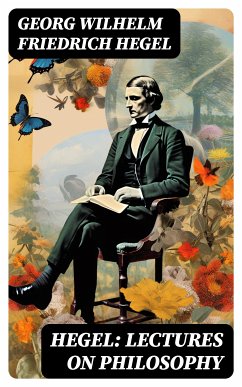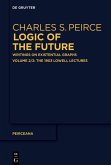Georg Wilhelm Friedrich Hegel's "Lectures on Philosophy" serves as a profound exploration of philosophical thought, particularly in the realms of logic, nature, and spirit. Hegel employs a dialectical method that intertwines historical context with metaphysical inquiry, shaping a narrative that challenges readers to engage with the evolution of ideas. This work reflects Hegel's systematic approach to philosophy, emphasizing the interrelation of concepts and the progression of human consciousness. It is richly nuanced, offering insights into the development of modern thought and the complexities of reality, thus situating itself at a pivotal junction in the canon of Western philosophy. Hegel, a central figure in German idealism, was greatly influenced by the tumultuous socio-political landscape of his time. His engagement with Kantian philosophy, alongside the impacts of the Enlightenment and Romanticism, inspired him to articulate a comprehensive worldview that sought to reconcile individual freedom with universal principles. Hegel's background as a theologian and his extensive academic career reflect his dedication to preserving the intricacies of philosophical discourse, enabling readers to grasp the nuances of his thought. I highly recommend "Lectures on Philosophy" to anyone seeking a deeper understanding of Hegelian philosophy and its implications for contemporary thought. This text is an invaluable resource for students, scholars, and general readers alike, inviting engagement with foundational concepts that continue to resonate within various fields of inquiry, from political theory to existentialism.
Dieser Download kann aus rechtlichen Gründen nur mit Rechnungsadresse in A, B, BG, CY, CZ, D, DK, EW, E, FIN, F, GR, H, IRL, I, LT, L, LR, M, NL, PL, P, R, S, SLO, SK ausgeliefert werden.
Hinweis: Dieser Artikel kann nur an eine deutsche Lieferadresse ausgeliefert werden.









